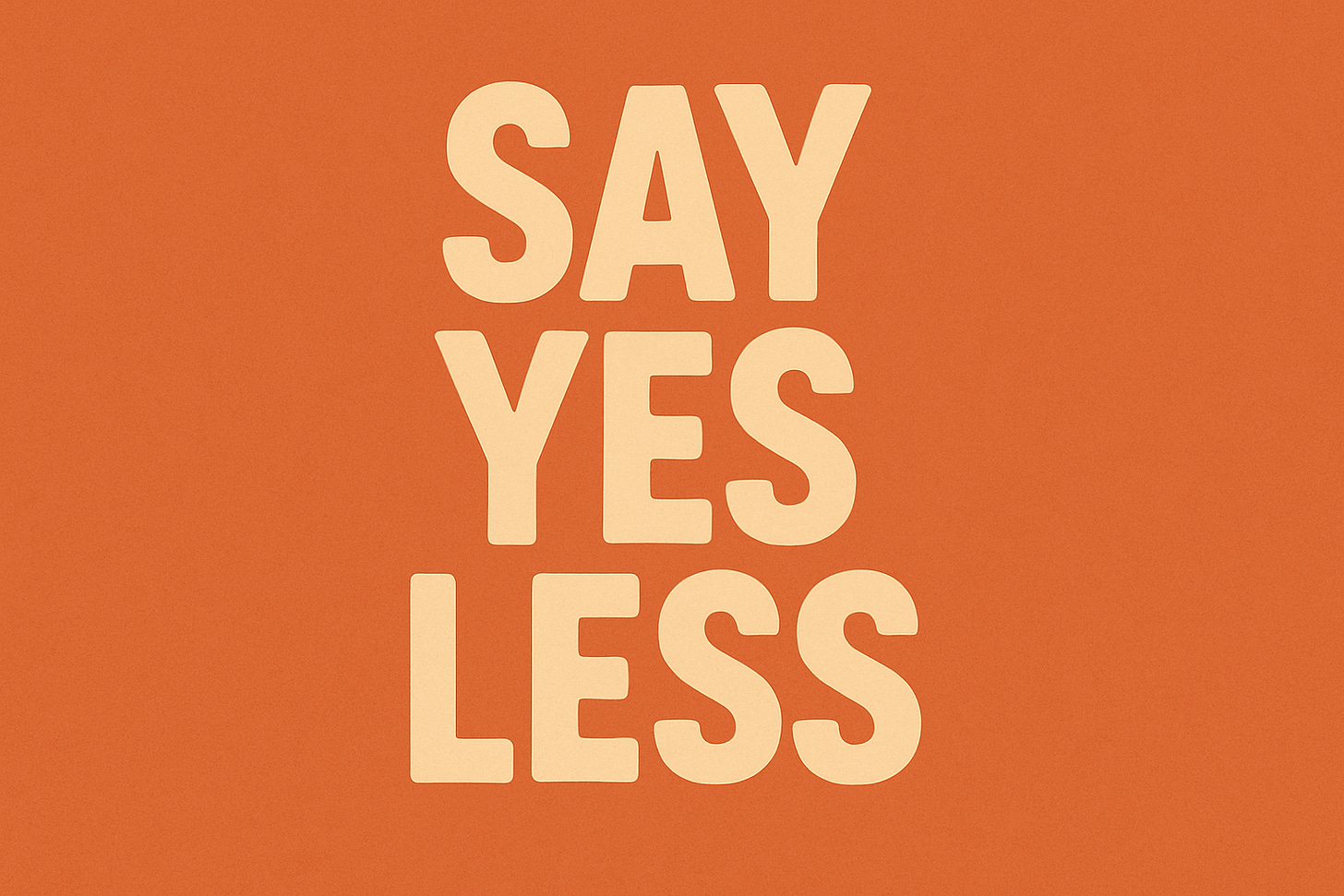“What’s the cost of saying yes?”
Stop asking 'How do I say no?' and start asking this instead.
If you're a people-pleaser, this might help. You already know that time is limited and you can't do everything—but you still struggle to say no to every request that comes your way.
You understand the concept of boundaries. Maybe you’ve even practiced “saying no” in your head. But when someone actually asks you for something—especially if they seem to really need your help—all that knowledge goes out the window.
This happens because most advice focuses on the mechanics of saying no, not the mindset behind it. We're told to "just say no" or "set boundaries," but we're not given a framework for why saying no is often in everyone’s best interest.
So here's a different approach: instead of asking "How can I say no?" start by asking "What's the cost of saying yes?"
What will you no longer be able to do?
What time and energy will you give away?
Does taking on another commitment get you closer to the goals you already have?
Simply put:
What is the cost of saying yes?
An example: a colleague asks you to help with their presentation this weekend. The cost of saying yes is you'll miss your planned rest time, feel stressed about your own deadline on Monday, and likely do lower-quality work on both projects. Suddenly, saying no doesn't feel selfish—it feels responsible.
When you say yes to something you don't have capacity for, you're not actually helping anyone. You're setting yourself up to be stressed, potentially resentful, and less effective. Sometimes the most generous thing you can do is say no.
P.S. Another way to think of it: Instead of "Can I do this?" ask "Should I do this?"






I recently saw a meme about how the world is coming to an end because people aren’t “going out of their way” to be “inconvenienced” by being in community and connecting to others.
It was a modern meme-take on the same old Judeo-Christian, consensus, conventional garbage that taking care of yourself is selfish.
It really got under my skin!
Narcissists weaponize obligation and guilt to force connection when they haven’t earned it.
My narcissistic mother’s favorite insult was “You’re selfish!!”
This, from a woman who was shrieking like a banshee and throwing glasses to get her point across. Huh.
In addition to her failure of logos, because as a child I had needs, and my basic needs did not qualify me as a selfish human, she was also an epic fail at ethos— her qualifications as an authority were zero.
You can’t expect people to take you seriously as someone who has anything reputable to say about the behavior of other humans, when your behavior doesn’t meet the bare minimum standards of human behavior. Her behavior was only reputable for, maybe, a chimpanzee!
All that to say, I believe a lot of us have been conditioned to associate putting our needs first with being selfish, either because of memes or the cultural Zeitgeist or Judeo-Christianity or narcissistic upbringings. We have a lot of cultural programming to undo here!
And I’m grateful, Chris, that you are inviting people to unravel it.
I’m with you on team “say yes less.”
Because what the world needs are more people who are centered and solid and sane.
And that takes time and space – running around doing everything for everyone all the time only creates people who are like chickens with their heads cut off, and that doesn’t serve to create a better world.
👏🏼👏🏼👏🏼